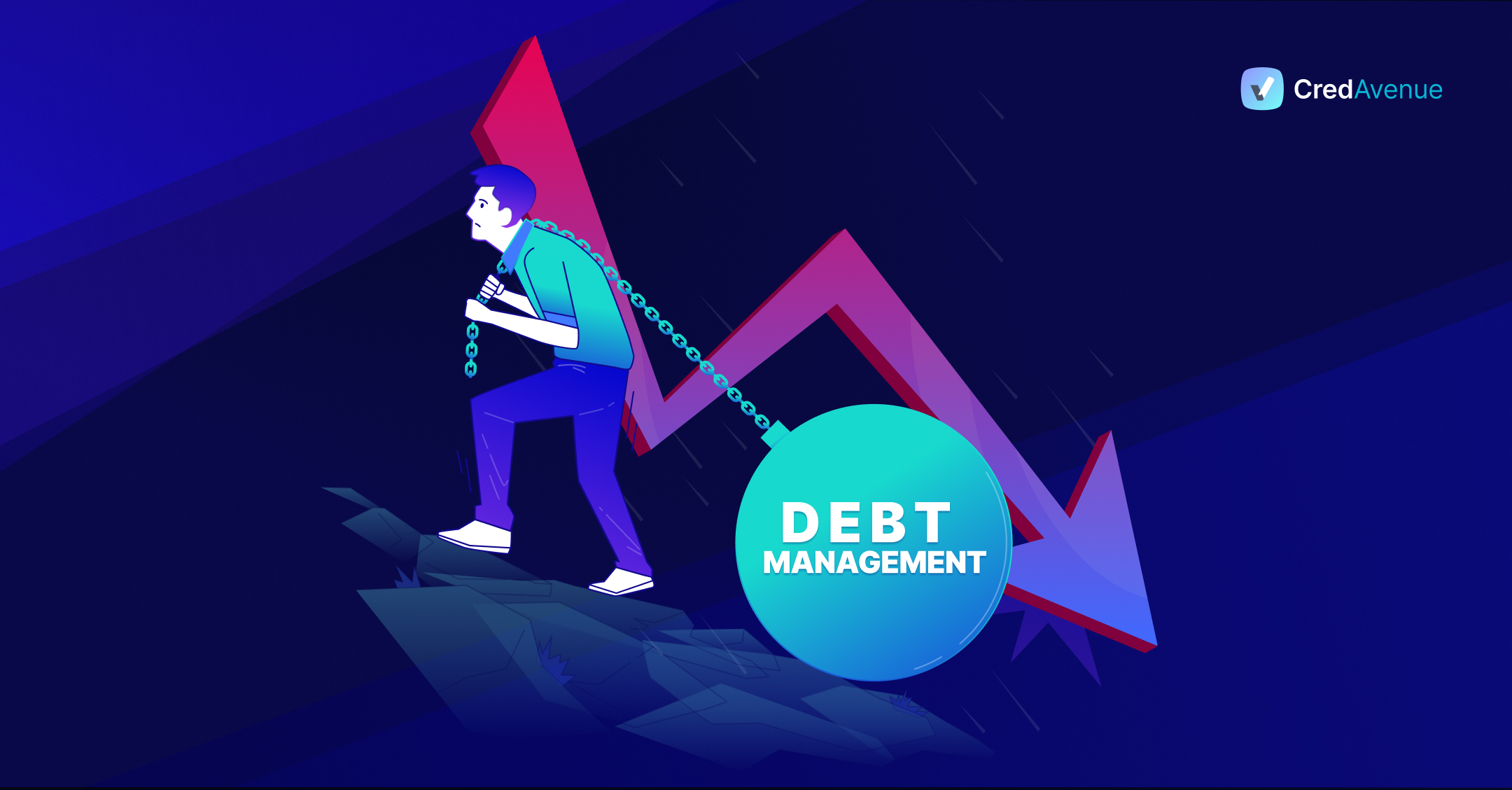
What is a Debt Management Plan?
One of the most effective options to get out of debt fast is a Debt Management Plan (DMP). A debt management plan is a debt consolidation plan/program offered by a nonprofit credit counseling agency to borrowers struggling to make debt payments.
Under a debt management plan, one monthly payment is to be made to the credit counseling agency rather than paying your creditors directly. The agencies disburse the money to your creditors on your behalf, based on a payment schedule agreed upon by them. These agencies contact your creditors to gain their participation and try reducing your interest rates, lower monthly payments, or waive off late fees. Further, these agencies help create a budget, reduce expenses, and manage your money better.
The debt management plans require consistent monthly payments. The DMP usually takes 3-5 years to end, and you cannot accept any additional credit during this period. Finally, at the end of a debt management plan, your debt payment will be paid off, and you’ll be debt-free.
How do Debt Management Plans work?
Many corporations/individuals usually use a corporate debt management program to make big purchases difficult to afford otherwise. Credit counseling companies often offer debt management plans to those borrowers/corporate houses struggling to make multiple or high monthly payments. These credit counseling companies work directly with their clients to decide how to handle every financial situation. They negotiate on your behalf with creditors to help you get a lower interest rate and monthly payment option.
When as a borrower, you agree to be a part of a debt management plan or consider a corporate debt management program for your company, you also agree to close all of your current credit accounts. Further, a notation on your credit history is made to indicate to lenders that you are on a DMP (Debt Management Plan) and cannot have any new lines of credit. This notation is finally removed once you complete or exit your plan.
How Debt Management Plan Affects Your Credit?
A lender and credit agency use credit history to generate a credit score. While a debt management plan does affect your credit history, it does not have a long-lasting negative effect on your credit score. By agreeing to close all of your credit accounts, your credit history stops, and a temporary pause in your available credit may harm your score. Upon completing your debt management plan, you can continue applying for loan and using your credit once again. The notation highlighting your DMP activity does not damage your score, the lender is now aware that you actively worked to pay off your loan.
Furthermore, DMPs are designed to be paid off with regular monthly payments over roughly four years. Hence on signing up for a debt management plan, you make a monthly payment from your bank account, and these timely payments over the years have a very positive impact on your payment history. Your credit history and credit score will be negatively impacted if you fail to follow your plan and miss out on the monthly payment schedule.
Debt Management Plans – Pros & Cons.
Pros –
- Debt-free within a short period: Debt gets significantly reduced with a debt management plan. Debt is paid off substantially faster, and you can pay off all of your existing accounts within five years.
- Easy payments: Helps to efficiently manage money by making just one payment to the credit counseling agency instead of multiple payments and remembering due dates.
- Credit score improvement: Helps improve credit score by making payments under the debt management plan. A consistent monthly payment helps improve credit score.
Cons –
- Credit cards are disabled: To ensure that additional debt is not incurred, credit counseling agencies instruct stop using or even closing existing credit cards, if any. Thus, until your credit card debt is paid off, no credit card can be used, and you can use only cash and debit cards.
- No access to new lines of credit: Access to new lines of credit will not be permitted while associated with a debt management plan.
- Creditors may not participate: Not all creditors consent to participate in a debt management plan. If creditors refuse to be included, the DMP will not be effective.
Summary
Debt management plans are practical tools for repaying debt and help tackle debt by paying off debt in five years or less. To initiate a debt management plan, you need to work with a nonprofit credit counselling agency. These agencies help create a budget, reduce expenses, and manage money efficiently. Enrollment and maintenance fees are charged in a debt management plan. At the end of a debt management plan, the company/ the borrower is debt-free.
Why is a Debt Platform Right for You?
The debt platform offered by CredAvenue – CredLoan – is India’s largest online debt marketplace which provides access to both borrowers & lenders and facilitates a complete debt ecosystem from discovery and execution to fulfilment.
CredLoan is a complete debt platform with multiple products catering to your specific debt requirements. An intuitive and ‘easy-to-use’ platform, CredLoan enables a customized online experience for you. Using CredLoan you get discovered by 500+ lenders that meet your criteria and avail a seamless end-to-end experience. This platform is a one-stop solution for every enterprise or issuer looking for debts to sustain, grow and evolve.
FAQs
Q: What is debt?
A: Debt is money or assets borrowed from one party by another party. Under a debt arrangement, the borrowing party can borrow money under certain conditions to be paid back with interest later. Corporations or individuals often use debt to make purchases not affordable under normal circumstances. The borrowing party borrows money with a debt arrangement, and the money is paid back later, usually with interest.
Q: What are some examples of debt?
A: Debt is anything owed by one party to another. Examples of debt include credit cards, car loans, and mortgages.
Q: What are corporate debts?
A: Corporations often have varying types of debt, including corporate debt. Corporate debt involves issuing bonds to investors to generate capital. Debt can be used to fund much-needed projects. However, too much or uncontrolled debt can harm borrowers as it limits their potential to repay; a corporate debt management plan can help in such circumstances.
Q: What is a corporate debt management program?
A: Credit counseling companies offer corporate debt management plans to corporate houses/borrowers struggling to make multiple or high monthly payments. These companies’ attempts to negotiate with the creditors for lower interest rates and monthly payments on the remaining amount owed.




